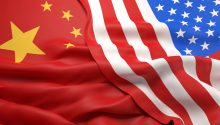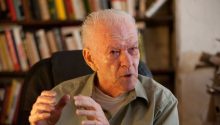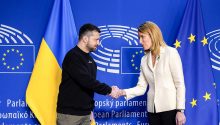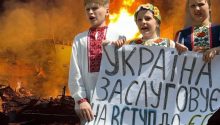contributors
Laura Ruggeri

Born in Milan, she moved to Hong Kong in 1997. A former academic, in recent years she has been investigating colour revolutions and hybrid warfare. Her analyses and opinion pieces have been published by China Daily, DotDotNews, Qiao Collective, Guancha (观察者网), The Centre for Counter-hegemonic Studies, et al. Her work has been translated into Italian, Chinese and Russian.
all articles


In the spectral phantasmagoria of Artificial Intelligence, the “utopian” and the “cynical” have joined hands while we grapple with the consequences of ontological confusion, loss of trust and intensified exploitation.


L’America e la Cina stanno attraversando una trasformazione attiva delle loro relazioni, come saranno sotto la seconda presidenza di Donald Trump?


Trump’s team encompasses a variety of perspectives on how to assert U.S. leverage in the competition with China.


Le risposte alla prima crisi dell’egemonia statunitense hanno scatenato forze che hanno finito per erodere il potere degli Stati Uniti.


The responses to the first crisis of U.S. hegemony unleashed forces that ultimately eroded its power


The comprehensive strategic partnership between the two countries is running on high-gear as they share common views on the necessity of supporting the emergence of a multipolar world order based on the principle of sovereign equality.


No final de outubro, a presidente do Parlamento Europeu, Roberta Metsola ao ser questionada por um jornalista se a UE abriria formalmente as negociações de adesão da Ucrânia e da Moldávia, depois de conceder o estatuto de candidato a estes países em 2022, respondeu: “Se um país olha para a Europa, então a Europa deve escancarar as portas. O alargamento sempre foi o instrumento geopolítico mais forte da União Europeia”.


A ‘geopolitical EU’ remains little more than a consolatory fantasy predicated on its power of attraction — the queue to join.


The fantastical narratives of recovery and reconstruction were concocted years earlier as part of several ‘reform plans’ for Ukraine.


The European Union’s co-optation of six ex-Soviet countries around an anti-Russian agenda turned them into a hybrid warfare battleground.



